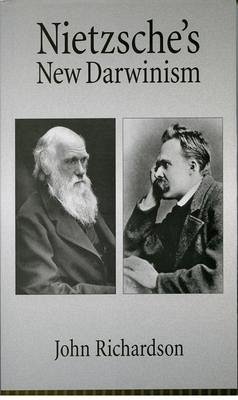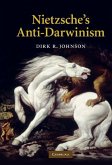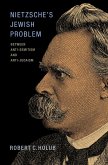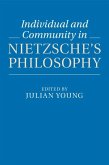Nietzsche wrote in a scientific culture transformed by Darwin. He read extensively in German and British Darwinists, and his own works dealt often with such obvious Darwinian themes as struggle and evolution. Yet most of what Nietzsche said about Darwin was hostile: he sharply attacked many of his ideas, and often slurred Darwin himself as "mediocre." So most readers of Nietzsche have inferred that he must have cast Darwin quite aside. But in fact, John Richardson argues, Nietzsche was deeply and pervasively influenced by Darwin. He stressed his disagreements, but was silent about several core points he took over from Darwin. Moreover, Richardson claims, these Darwinian borrowings were to Nietzsche's credit: when we bring them to the surface we discover his positions to be much stronger than we had thought. Even Nietzsche's radical innovations are more plausible when we expose their Darwinian ground; we see that they amount to a "new Darwinism." The book's four chapters show how four of Nietzsche's most problematic ideas benefit from this Darwinian setting. These are: his claim that life is "will to power," his insistence that his values are "higher" yet also "just his," his disturbing ethics of selfishness and politics of inequality, and his elevation of aesthetic over moral values. Richardson argues that each of these Nietzschean ideas has a clearer and stronger sense when set on the scientific ground he takes from Darwin.
Dieser Download kann aus rechtlichen Gründen nur mit Rechnungsadresse in A, B, BG, CY, CZ, D, DK, EW, E, FIN, F, GR, HR, H, IRL, I, LT, L, LR, M, NL, PL, P, R, S, SLO, SK ausgeliefert werden.









